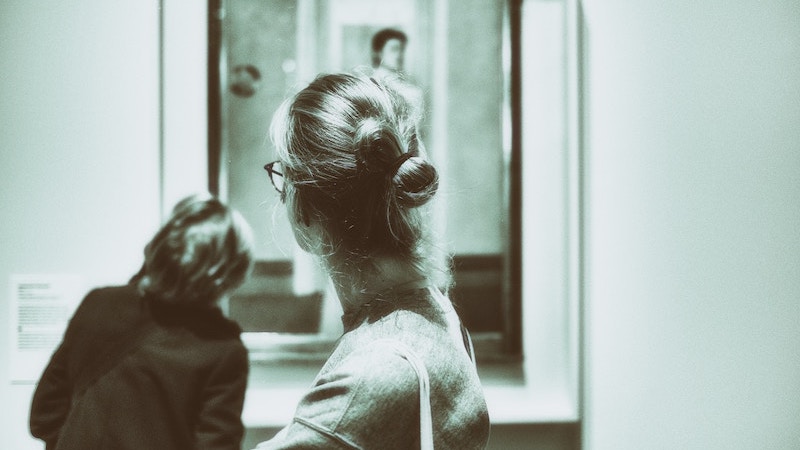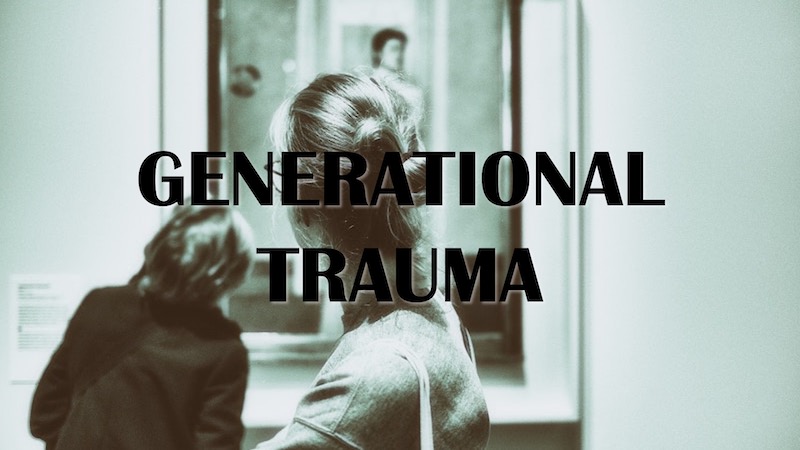Are you carrying inherited resentment?
- 18 December 2023
- Posted by: Michael H Hallett
- Category: Generational trauma ,

On this site I’ve written extensively about shame and generational trauma. In their deadly embrace a third entity, a poisoned and poisonous child, stealthily sulks: resentment.
As we strip away the layers of shame and trauma we reveal deeper layers of family detritus, like an emotional midden heap on an archaeological site. I find myself like the woman in this evocative image from Johann Walter Bantz, glancing over my shoulder at my parents and grandparents, wondering exactly what legacy they left me.
What is resentment?
The Merriam-Webster dictionary defines resentment as “a feeling of indignant displeasure or persistent ill will at something regarded as a wrong, insult, or injury.”
The key phrase here is “persistent ill will.” As in, persisting across multiple generations. Like shame and like trauma, resentment obeys the Law of Conservation of Energy. If it cannot be transmuted, it must be transferred.
And transferred it was.
Both my parents had multiple experiences of betrayal by their caregivers, of abandonment, and of the resulting shame.
My father’s mother died in 1926, in the wake of World War I, when he was 4 years old. With so much suffering from the war this was an emotionally rigid society. Grief wasn’t permitted. His father remarried, but the marriage didn’t last. His father simply walked out, cutting him off from his birth family and heritage, and disinheriting him.
My mother’s mother had an affair in the 1930s. Her father went to court and won custody of my mother. Her mother was evicted from the family, adding abandonment to already toxic feelings of sexual shame. The family moved to Jersey, into the path of the advancing Nazis in the summer of 1940. My mother was separated from her family and literally thrown onto a coal barge to escape, compounding her earlier experiences of parental separation.
Neither of my parents ever recovered from their childhood traumas. Their generation was, for the most part, too emotionally constrained to do the necessary shadow work.
Their adolescent grievances simmered unacknowledged, their needs unmet, nameless traumas rotting and corroding their joy, their hope, their agency. Unaddressed grievances eventually turn into silently toxic resentment.
And became part of my genetic legacy.
Healing resentment
Like shame and trauma, the first step in healing resentment is recognising its existence.
Speaking of racial trauma at the 2021 Intergenerational Trauma Conference, Professor Ken Hardy said that “we have to change what we look for in order to change what we see.” For all my years of shame and trauma clearing, I hadn’t guessed the presence of resentment.
Yet, with hindsight, its noxious presence is blindingly obvious: my difficulty in accessing joy, and in sharing in the successes of others. Both are hallmarks of resentment.
Can you identify any situations in your family tree where resentment may have festered? Where did the hammer-blows of betrayal, abandonment, and toxic shame fall repeatedly? These are the signposts to seek.
If you would like help with clearing generational trauma, shame, or resentment please visit the Courses page.
Next steps
For further resources on generational trauma, both free and paid, please click on this image.
Photo by Johann Walter Bantz on Unsplash

